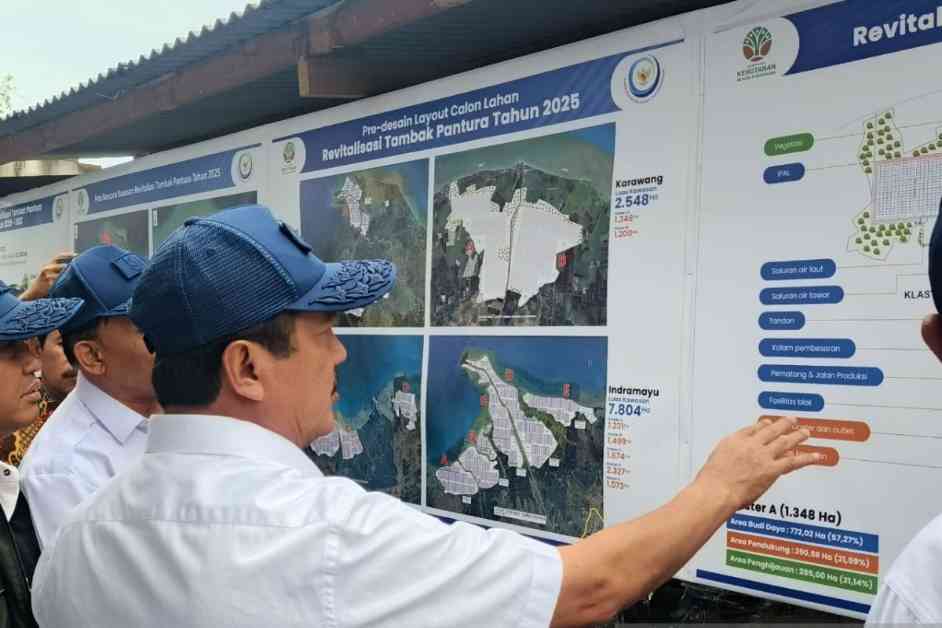Revitalizing Ponds for Economic Growth: Minister’s Plan
Karawang, West Java – Maritime Affairs and Fisheries Minister Sakti Wahyu Trenggono has unveiled an ambitious plan to revitalize unproductive ponds along the north coastal area (Pantura) of Java, aiming to bring significant economic benefits to the local community.
## Minister’s Bold Vision
Minister Trenggono envisions revitalizing a vast area of 78 thousand hectares, with each 10 thousand hectares requiring an initial investment of Rp15 trillion. This substantial investment is projected to yield profits of up to Rp13.5 trillion annually, highlighting the immense economic potential of this initiative.
## Strategic Implementation
The revitalization plan will be executed in stages from 2025 to 2029, spanning four provinces and 26 districts/cities along the Java coast, from Banten to East Java. The first phase will focus on developing 20 thousand hectares of ponds on government-owned land in Bekasi, Karawang, Subang, and Indramayu.
## Local Impact and Job Creation
In Karawang alone, 2,548 hectares of ponds will be revitalized, creating opportunities for up to 20 thousand workers. Minister Trenggono emphasized the significant contribution of these workers to the local economy, underscoring the importance of job creation in the revitalization process.
## Environmentally Sustainable Approach
To ensure long-term ecological sustainability, the pond revitalization program will prioritize environmentally friendly practices. This includes implementing a sustainable cultivation system and building a wastewater treatment plant (IPAL) to process wastewater. Additionally, vegetation will be strategically planted outside the ponds to serve as a natural filter, preventing water pollution and safeguarding the marine environment.
By adopting a holistic approach that combines economic growth with environmental conservation, Minister Trenggono’s visionary plan sets a new standard for sustainable development in the region. The revitalization of idle ponds not only promises lucrative economic returns but also demonstrates a commitment to preserving the natural ecosystem for future generations.
The potential of this initiative to transform local communities and drive economic prosperity is truly remarkable. As we look towards the future, it is inspiring to see leaders like Minister Trenggono paving the way for sustainable development that benefits both people and the planet.






















